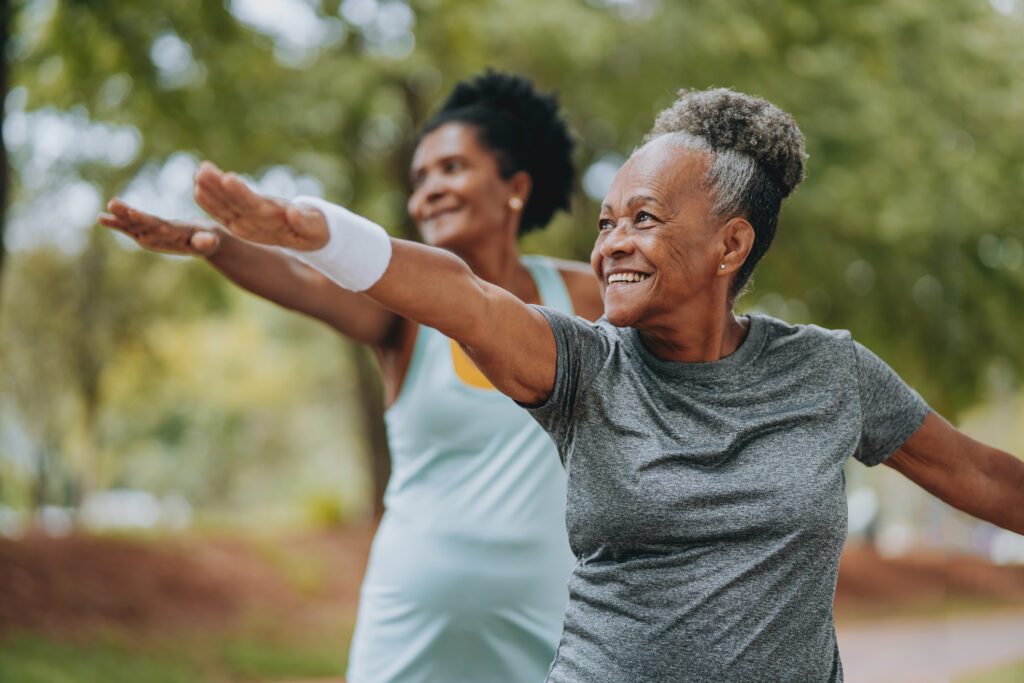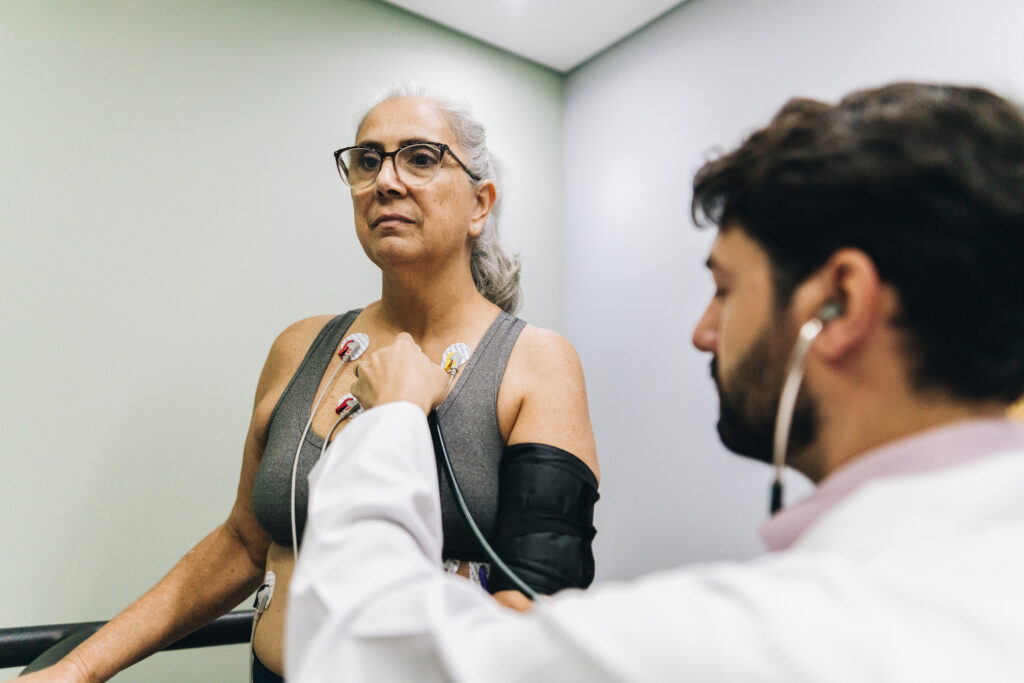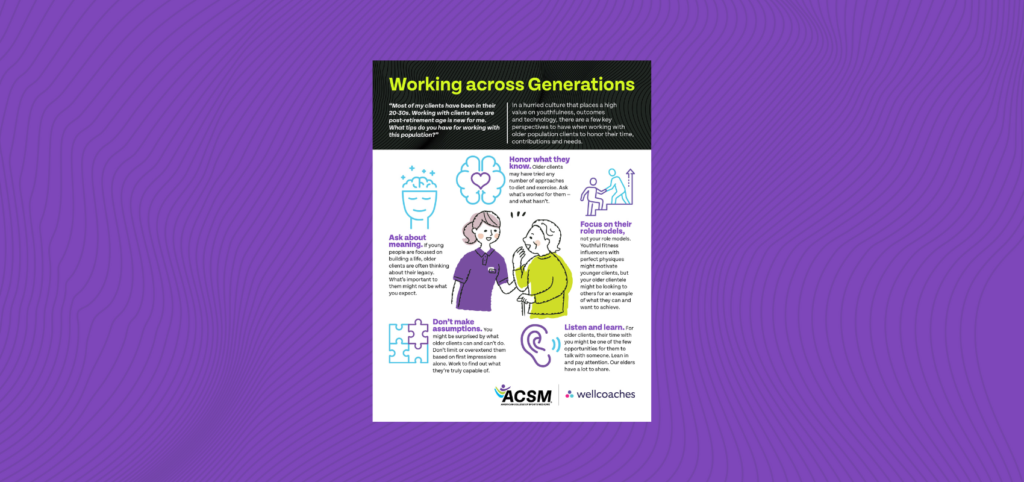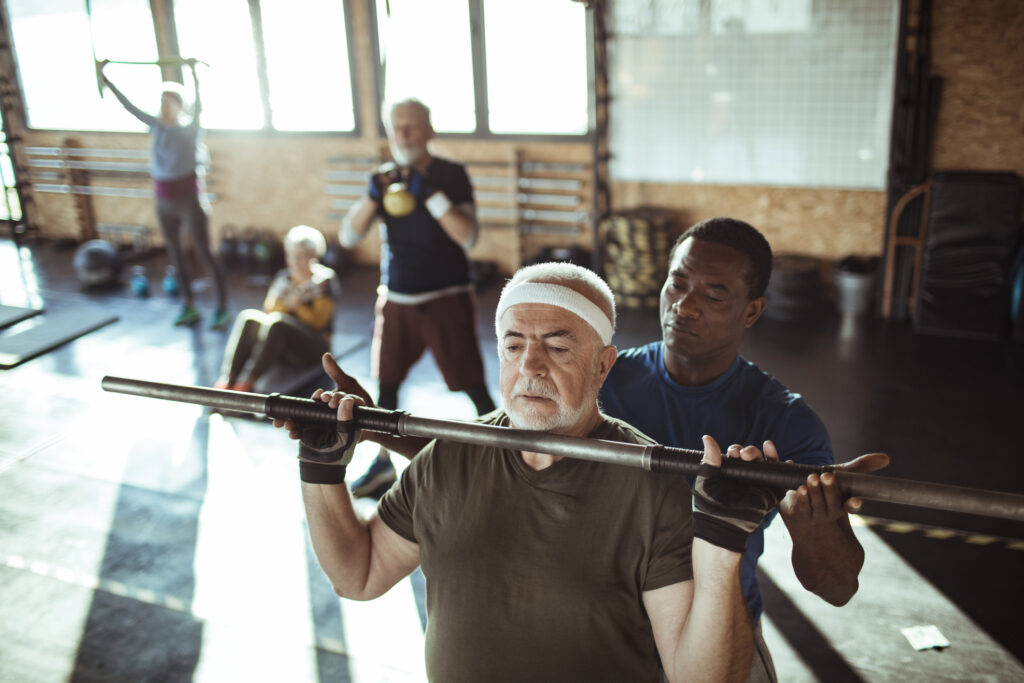From Activity to Sleep: A Balanced Lifestyle Approach to Brain Health

Dementia is one of the leading causes of disability and mortality worldwide, and modifiable lifestyle factors may be critical for preventing up to 45% of all-cause dementia occurring after age 65. Two key modifiable risk factors associated with reduced dementia risk and improved brain health are regular physical activity and good quality sleep. Physical activity […]
Does Cardiorespiratory Fitness Prevent Breast Cancer in Women?

Scientific evidence collected for seven decades strongly supports the position that higher cardiorespiratory fitness (CRF) levels are associated with more favorable health outcomes, including mortality due to various cancers. Findings from several small population studies suggest that a physically active lifestyle offers protection against pre- and postmenopausal breast cancer. However, physical activity in these studies […]
Technogym Q&A | Physical Activity as Pillar of Healthy Longevity

Miss the webinar? Access the Recording Here In the pursuit of a longer and healthier life, it’s essential to focus on both the quantity and quality of the years we live. Healthy longevity—free from chronic diseases—requires attention to both morbidity and mortality. This approach offers valuable insights for health professionals, the public, and policymakers alike, […]
Visceral Fatness and “BrainAge”

There is little doubt that our brain changes as we age, with changes in structure that contribute to cognitive decline over time. However, the degree of change is highly variable across individuals in terms of its onset, rate and magnitude. How should we behave, and what should we change to ensure that our brains stay […]
Whole Body Fatigability as a Measure of Mortality Risk

A common definition of fatigue is a “subjective lack of physical and/or mental energy perceived to interfere with usual or desired activities.” Fatigue is a typical response to physical or mental exertion such as exercise, challenging physical tasks, or a long day’s work or dealing with emotionally taxing situations. Yet, everyday fatigue is a common […]
How to Prescribe Exercise for Brain Health

Alzheimer’s disease and related dementias are among the world’s foremost health and economic challenges, impacting over 55 million people worldwide and costing more than 1.3 trillion U.S. dollars in 2019 alone. With no imminent cure, there is an urgent need for interventions that reduce dementia risk in healthy older adults. Physical exercise is one of the greatest […]
Working Across Generations

In a hurried culture that places a high value on youthfulness, outcomes and technology, there are a few key perspectives fitness professionals should have when working with older population clients to honor their time, contributions and needs.
Prostate Cancer: A Survivor’s Perspective

September is Prostate Cancer Awareness Month, and for men living in the U.S., one in eight will be diagnosed with the disease at some point, including more than 200,000 this year. If you are an African American man, the likelihood is one in five, and if you have a family history of prostate cancer, the […]
Working with Older Adults? Don’t Skimp on Strength Training

“Garrett, I’m too old to strength train.” If I had a penny for every time I heard this statement, I’d be a rich man! Really, I would. More recently: “Dr. Kellar, aren’t some people too old to do strength training?” What? No! A person is never — yes, never — too old to strength train! As one […]
Muscle Strength Genotype Predicts Functional Capacity at Older Age

Throughout the lifespan, maximum hand grip strength reflects general health and vigor and is therefore commonly suggested to be a biomarker of aging. Although aging results in declines in muscle strength, individual strength changes follow a predictable pattern, as shown by strong correlations between measurements carried out decades apart. Family and twin studies have also […]
